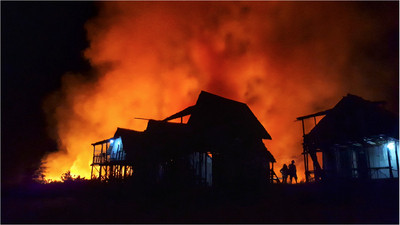Tornadoes, hurricanes, floods, and earthquakes are among the worst weather emergencies that can happen anytime in certain areas. But blizzards, thunderstorms, and landslides can also cause havoc in a community. The electric can go off or almost any reason and stay off for hours or even days. When a disaster of any kind strikes, it is important to be prepared. Here are several important ways to prepare for a potential catastrophic event.

Create a Disaster Plan
Everyone should have a preparedness plan in case disaster strikes. The plan should include all family members and possibly other relatives or caregivers who routinely visit the home on a fairly consistent routine. The plan should explain where everyone should meet if the home is damaged or destroyed. Also included would be a reminder of important assets like legal documents, valuables, and heirlooms, which might be in a local bank safety deposit box. Spare keys could be included with the plan for extended family members. Family doctors might be listed in case a neighbor would stop by to check following a disaster and find someone ill or in need of medical help. The plan should be made known to a few trusted neighbors or friends who can help if needed.
Organize Supplies
Although it is impossible to predict what type of serious problem could hit a neighborhood or family, there are some general ways to get ready. Flashlights with batteries, a battery-operated radio, several cases of drinking water, and canned or frozen foods with long-term expiration dates are important. Some people keep a power generator in case the electric goes off. Extra vials of medication, if possible, can be stored as well as pet supplies and hygiene products to last for several weeks. While lists may vary, this provides a start.
Make Legal Provisions
Consult a lawyer, such as Bruce Yerman Attorney At Law, about the disposition of personal assets as well as the responsibilities of meeting financial obligations if a disaster prevents you from working. This is also a good time to ask about living wills and a last will and testament to avoid unplanned decisions at an inopportune time.
Coordinate Communication
As part of the emergency plan, orchestrate a phone chain that connects everyone in case of an emergency. While social media can be used if the Web is available, cell phone coordination offers backup support for quickly reaching relatives and friends with updates.
None of us want a disaster to hit our homes and communities. But if one does, let’s be prepared to deal with the resulting issues as efficiently as possible.
